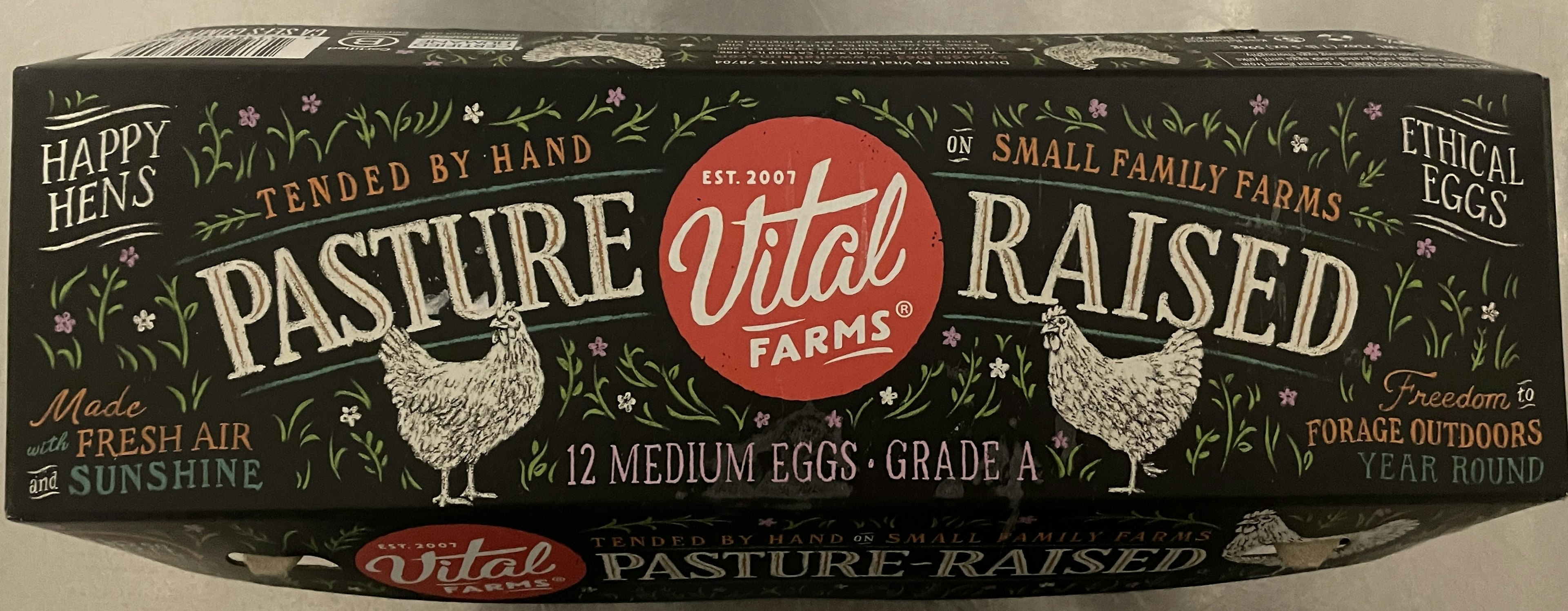- Published on
- Sunday, March 3, 2024
Eggs: Let us hatch a plan together

Before you dismiss this post based on it's title, let me tell you, what I am talking about here is extremely important. You hear people say things like How is it that in my trips to Europe I can eat twice of what I eat at home in the States, and yet I lose weight?. While this post doesn't have all the pieces for that question, it starts to paint a picture.
I would say I am a "slightly above average" grocery shopper. I spend a lot of time perusing grocery aisles, even if I know exactly where the one thing I have come looking for is. For the last 15 years, I have walked past the eggs section in grocery store aisles. I always equated cage free to be the same as free range. Additionally, I have had a small amount of skepticism for the whitelabeled store eggs, which I felt (without any reason) were "not as healthy" as the ones with the fancier packaging.
I recently came across an Instagram reel that talked about the different varieties of eggs you get in an American grocery store and it opened my eyes to what the different types are.
There are 4 main types of eggs you can purchase -
1. Traditional eggs
These are typically whitelabled store eggs. These are hatched by hens raised in cages that have less than 67 sq inches of space. Wording such as "All-Natural" and "Farm Fresh" does not relate to animal welfare and are purely marketing terms that literally cannot be refuted, but are fancier words similar to "artisanal" or "organic".
2. Cage free eggs
These are hatched by hens raised in barns, but those hens don't get to go outside at all. They were also likely stocked at high densities, meaning there was no limit to the number of birds in a given barn.
3. Free range eggs
Free-range eggs means that hens must be given access to outdoor space, typically about 2 sq ft of roaming outdoor space. These hens are typically fed soy and corn as part of their feed.
4. Pasture raised eggs
These eggs are hatched by hens that are allowed to roam free, generally between 35–108 sq ft of outdoor roaming space. In pasture scenarios, chickens generally have access to the outdoors for many hours every day getting grass, bugs, worms but also grains as part of their feed.
Whats the bottom line?
Buying Pasture Raised Eggs is your best bet since the chicken has grazed in the best possible way. These eggs are expensive, but I believe they are worth it. There is an additional level-up of looking for when the chicken are not fed soy or corn as part of their feed. However, if you can't find it you are still significant better off than purchasing the other kinds of eggs. Everything else seems absolutely foul (pun intended) given the information I now know.
These are the eggs I purchase at my supermarket -

Thats all for today, yolks!